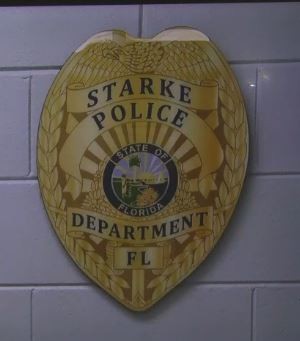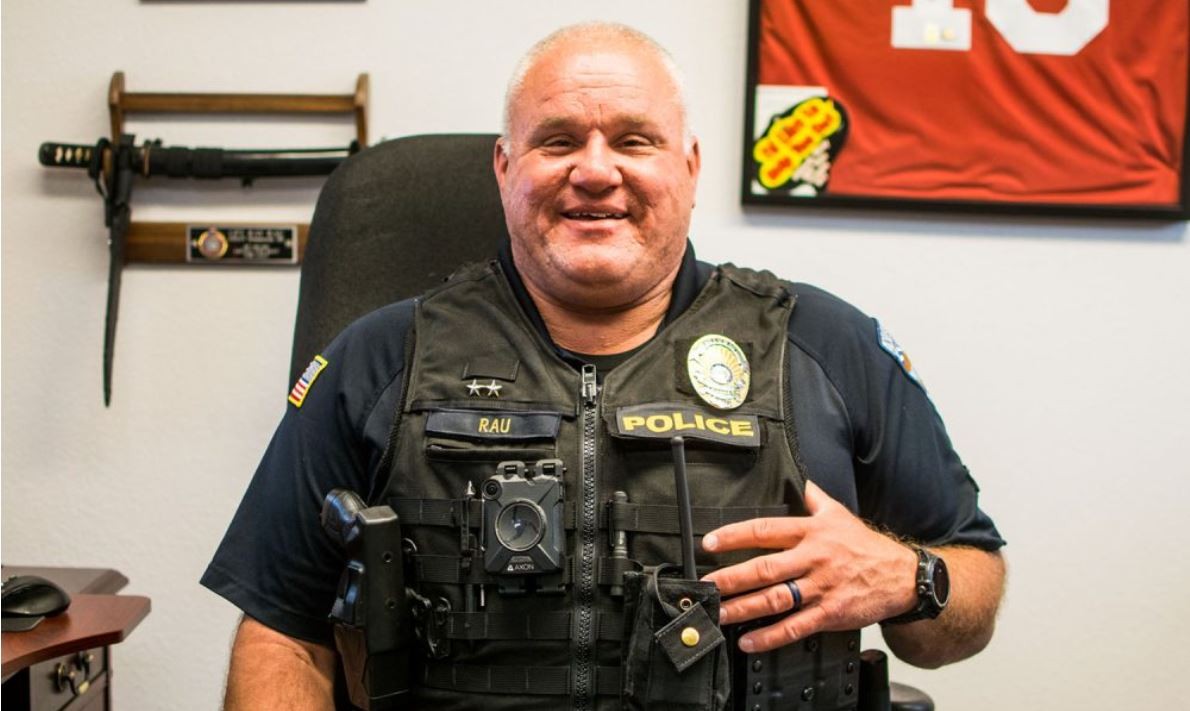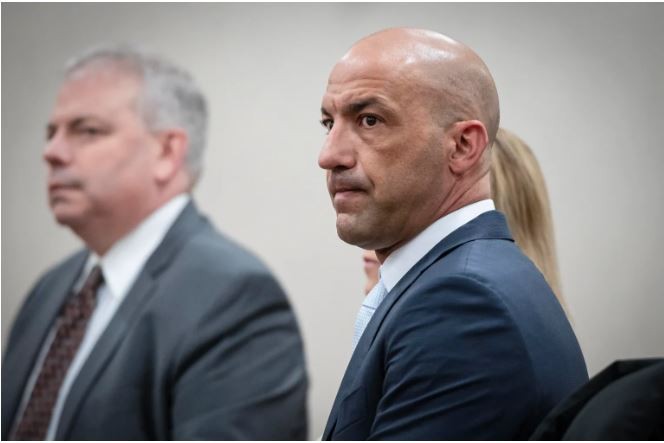- Home
-
News | Services
- CertificationEvidence Training & Certification Programs
- AccreditationAccreditation Guide & Resources
- Evidence News Top National & Global News
- NewsletterMonthly IAPE Email Newsletter
- Sponsors/AdvertisersAdvertisers & advertising options
- Job BoardView & Submit Job Listings
- Evidence Associations State Affiliates & Organizations
-
 ResourcesBooks | Manuals | Guides
ResourcesBooks | Manuals | Guides
- IAPE Forms & Professional StandardsForms | Standards Sample
- Manuals & GuidesSubmission | Packaging | & More
- DNA ResourcesJournal Articles & Law Enforcement Links
- Other ResourcesAudits | Digital | Best Practices
- Fentanyl ResourcesAudits | Digital | Best Practices
- Admin KillAdmin Approval to Purge Docs
- IAPE GalleryBest Practices From Agencies
- Fentanyl Resources & Guides
- Evidence by the book
- Evidence LogOnline IAPE Magazine
- Classes
- Membership
- About
- StoreIAPE Krapola
-
 Video ClassStudent Login
Video ClassStudent Login
DNA evidence helps convict man of rape in 1999 attack
1458 Hits
The Kansas City Star
BYLINE: MARK MORRIS; The Kansas City Star
Kansas City, MO
The case against whoever raped 81-year-old Carol Cooper in 1999 originally was filed against an anonymous "John Doe," identifiable only by his DNA profile.
But on Thursday a Jackson County jury decided that Terry U. Birmingham was responsible.
Jurors convicted Birmingham, 43, of forcible rape, assault and burglary in the Christmas Eve attack. They acquitted him of robbery and an additional rape charge.
Cooper told police that a stranger followed her into her Kansas City home after she took Christmas cookies to a neighbor. The stranger beat and raped her, trial evidence showed.
Though the trial took only three days, the case has a 10-year history rich in mystery and legal complication.
The case prompted an important change in Missouri criminal law, lost a key witness when Cooper disappeared six years ago and highlighted changing methods of DNA evidence collection, storage, testing and interpretation.
Without a victim to identify her attacker -- Cooper left her home for a walk in September 2004 and never returned -- the case against Birmingham depended heavily on decade-old DNA evidence.
Because investigators did not have a suspect's name early on, prosecutors filed charges against an unknown "John Doe" in 2002, before the statute of limitations expired. They identified him only with the DNA profile developed from evidence taken from Cooper.
This case marked the first time Jackson County prosecutors used the John Doe technique. Since then the office has filed more than a dozen such cases.
The Missouri General Assembly later changed state law to exempt forcible rape and sodomy from a three-year statute of limitations.
In August 2007, prosecutors amended the charges to identify Birmingham. He had been convicted that year of burglary and resisting arrest. As he was booked into a Missouri prison, authorities took a DNA sample from him that matched evidence from Cooper's rape, authorities said.
Bert Godding, Birmingham's defense lawyer, went deep into the weeds of the investigators' DNA recovery, storage and processing procedures to question whether DNA samples had been mishandled or contaminated.
He also asked jurors not to convict Birmingham without knowing more about Carol Cooper.
"We never met her," Godding said. "She never came in and said, 'This was the man.' All you heard was her hearsay, what she said a decade ago."
Prosecutors assured jurors that the DNA evidence was sound.
"It's been more than 10 years since December 24th, 1999," said prosecutor Jenifer J. Ashford. "Justice is long overdue."
The trial shed no new light on Cooper's disappearance. Prosecutors did not allege that Birmingham had anything to do with it.
After the verdicts, Godding said he planned to seek a new trial.
Judge Jay Daugherty set sentencing for March 26.
Birmingham's large family attended the trial, often catching his eye to offer support.
Bill Birmingham said he remained convinced of his brother's innocence.
"Our justice system has human errors," Bill Birmingham said. "You have to take the bitter with the sweet."
To reach Mark Morris, call 816-234-4310 or send e-mail to .
- - - - - - - - - - - - - - - - - - - - - - - - - - - - - - -
International Association for Property and Evidence
"Law Enforcement Serving the Needs of Law Enforcement"
www.IAPE.org
BYLINE: MARK MORRIS; The Kansas City Star
Kansas City, MO
The case against whoever raped 81-year-old Carol Cooper in 1999 originally was filed against an anonymous "John Doe," identifiable only by his DNA profile.
But on Thursday a Jackson County jury decided that Terry U. Birmingham was responsible.
Jurors convicted Birmingham, 43, of forcible rape, assault and burglary in the Christmas Eve attack. They acquitted him of robbery and an additional rape charge.
Cooper told police that a stranger followed her into her Kansas City home after she took Christmas cookies to a neighbor. The stranger beat and raped her, trial evidence showed.
Though the trial took only three days, the case has a 10-year history rich in mystery and legal complication.
The case prompted an important change in Missouri criminal law, lost a key witness when Cooper disappeared six years ago and highlighted changing methods of DNA evidence collection, storage, testing and interpretation.
Without a victim to identify her attacker -- Cooper left her home for a walk in September 2004 and never returned -- the case against Birmingham depended heavily on decade-old DNA evidence.
Because investigators did not have a suspect's name early on, prosecutors filed charges against an unknown "John Doe" in 2002, before the statute of limitations expired. They identified him only with the DNA profile developed from evidence taken from Cooper.
This case marked the first time Jackson County prosecutors used the John Doe technique. Since then the office has filed more than a dozen such cases.
The Missouri General Assembly later changed state law to exempt forcible rape and sodomy from a three-year statute of limitations.
In August 2007, prosecutors amended the charges to identify Birmingham. He had been convicted that year of burglary and resisting arrest. As he was booked into a Missouri prison, authorities took a DNA sample from him that matched evidence from Cooper's rape, authorities said.
Bert Godding, Birmingham's defense lawyer, went deep into the weeds of the investigators' DNA recovery, storage and processing procedures to question whether DNA samples had been mishandled or contaminated.
He also asked jurors not to convict Birmingham without knowing more about Carol Cooper.
"We never met her," Godding said. "She never came in and said, 'This was the man.' All you heard was her hearsay, what she said a decade ago."
Prosecutors assured jurors that the DNA evidence was sound.
"It's been more than 10 years since December 24th, 1999," said prosecutor Jenifer J. Ashford. "Justice is long overdue."
The trial shed no new light on Cooper's disappearance. Prosecutors did not allege that Birmingham had anything to do with it.
After the verdicts, Godding said he planned to seek a new trial.
Judge Jay Daugherty set sentencing for March 26.
Birmingham's large family attended the trial, often catching his eye to offer support.
Bill Birmingham said he remained convinced of his brother's innocence.
"Our justice system has human errors," Bill Birmingham said. "You have to take the bitter with the sweet."
To reach Mark Morris, call 816-234-4310 or send e-mail to .
- - - - - - - - - - - - - - - - - - - - - - - - - - - - - - -
International Association for Property and Evidence
"Law Enforcement Serving the Needs of Law Enforcement"
www.IAPE.org
How do you feel about this post?
Search IAPE
Blotter - Latest News
This story is not getting any better.
FDLE criminal probe of Starke Police: Guns, money, drugs among 2,500 pieces of missing evidence April 3rd, 2024 STARKE, Fla. — Action News Jax's Ben Becker is getting answers about a Northeast Florida...
Former Chief gets 10 days in jail!
Former Nyssa chief convicted of misconduct, sentenced to jail, loses badge April 3rd, 2024 Ray Rau, Tillamook police chief and former chief in Nyssa, was convicted of official misconduct Wednesday for...
Guilty! Vermont State Trooper Stole Evidence.
'Breach of trust': Former state trooper strikes plea deal in evidence room theft case April 5th, 2024 Giancarlo DiGenova, who resigned his position last year, received a probationary sentence Friday a...
News By Region
BC
(16)
District of Columbia
(22)
Northeast
(957)
Connecticut
(31)
Delaware
(7)
District of Columbia
(22)
Maine
(15)
Maryland
(38)
Massachusetts
(125)
New Hampshire
(26)
New Jersey
(33)
New York
(88)
Pennsylvania
(139)
Rhode Island
(12)
Vermont
(22)
Southeast
(1188)
Alabama
(49)
Arkansas
(30)
Florida
(172)
Georgia
(59)
Kentucky
(46)
Louisiana
(91)
Mississippi
(8)
North Carolina
(77)
South Carolina
(47)
Tennessee
(64)
Virginia
(47)
West Virginia
(35)
Southwest
(510)


